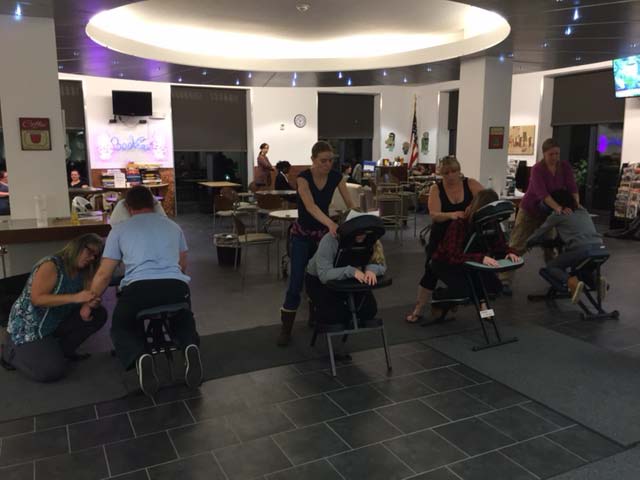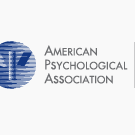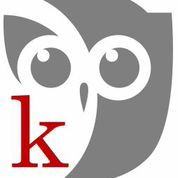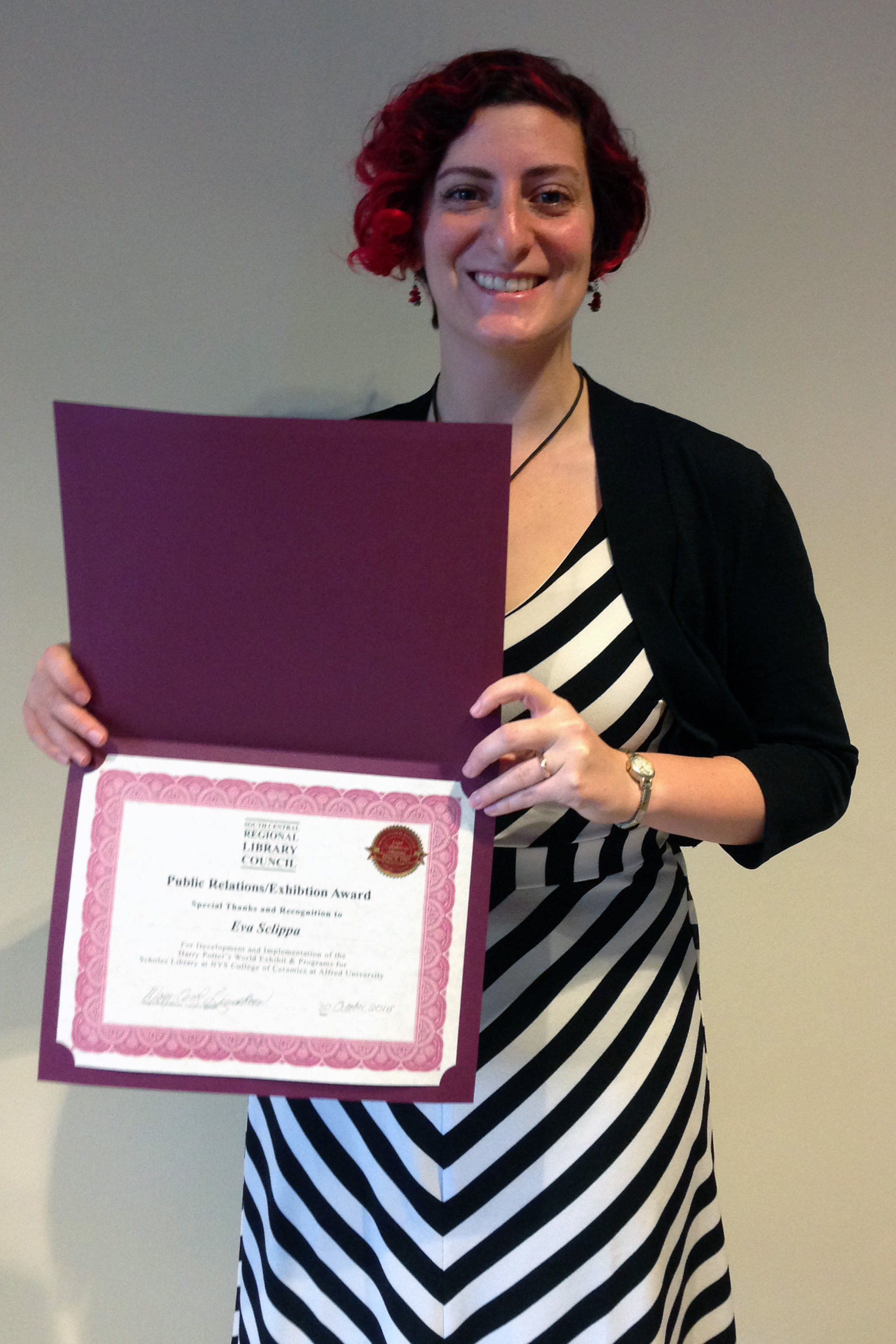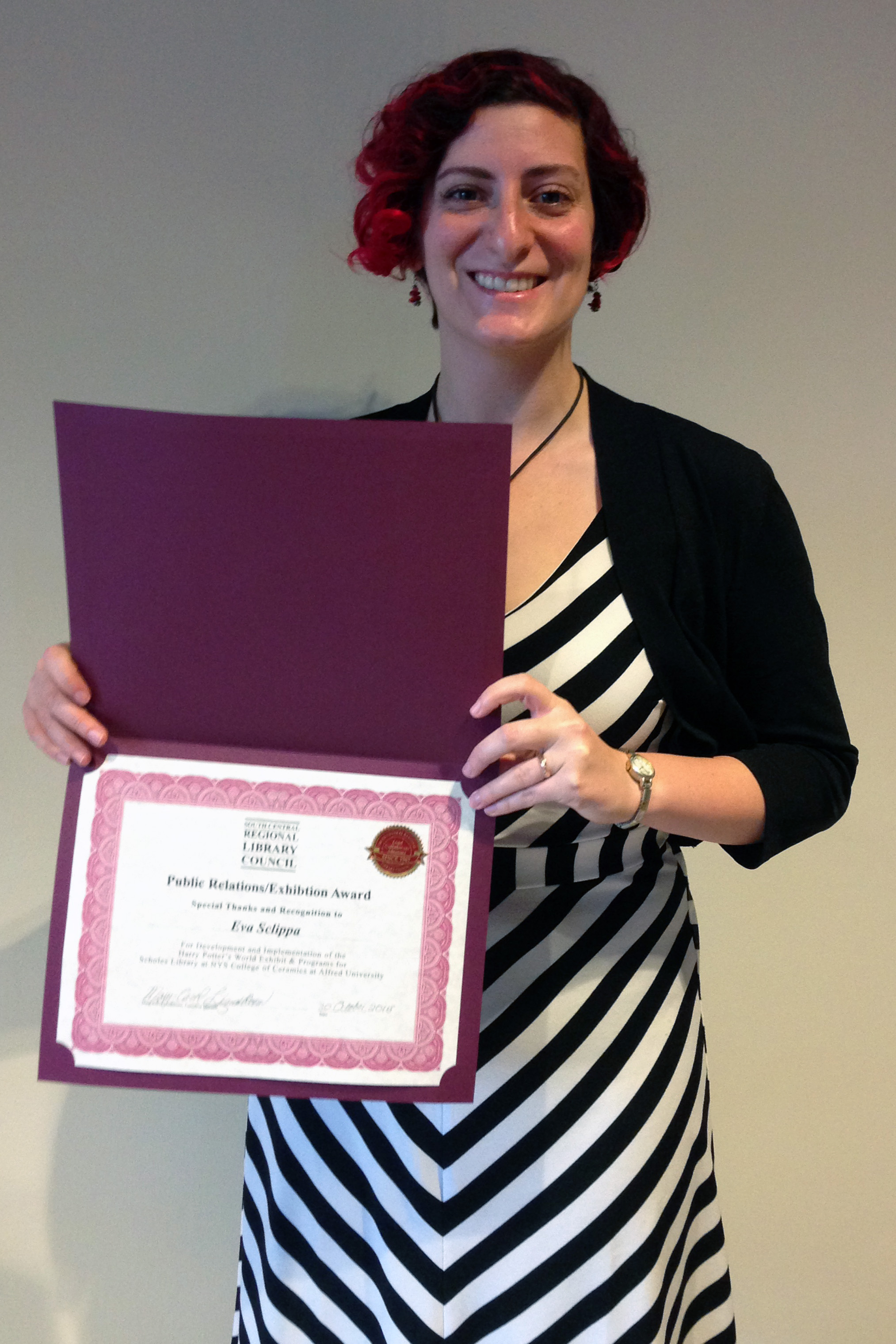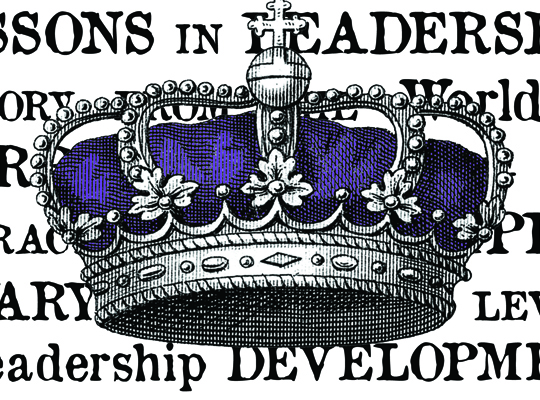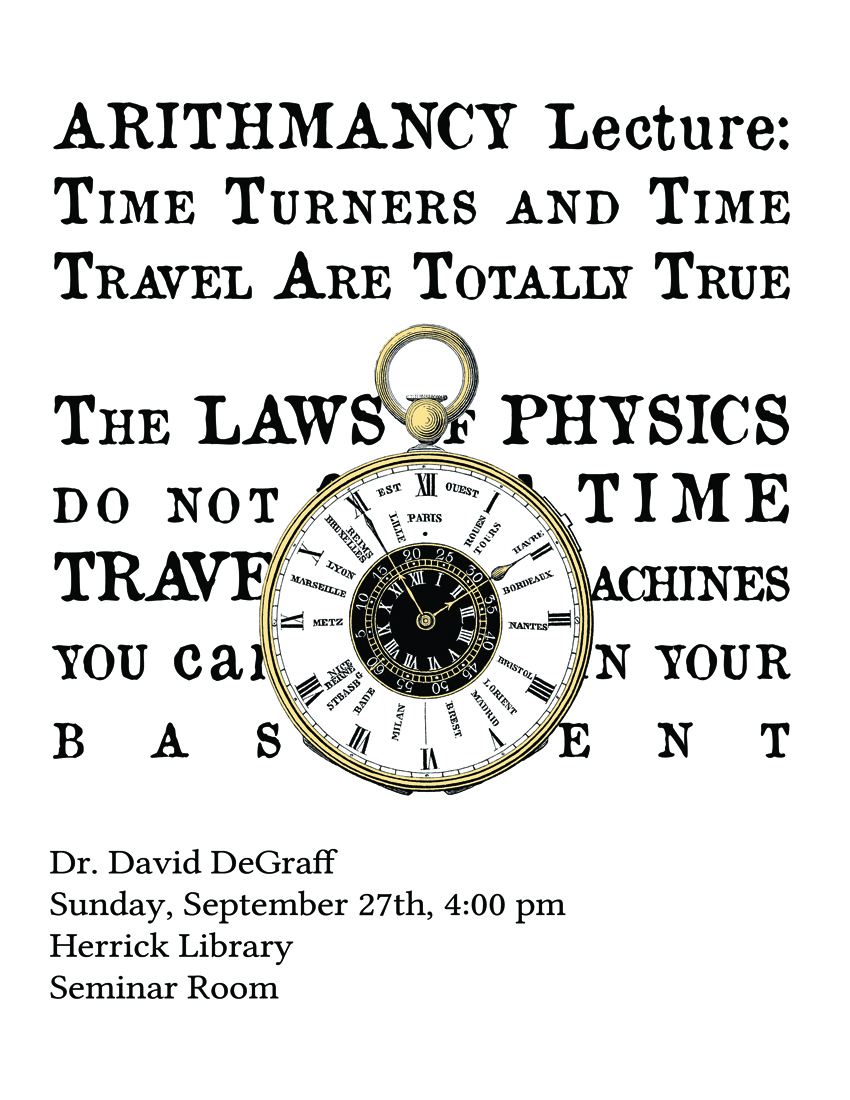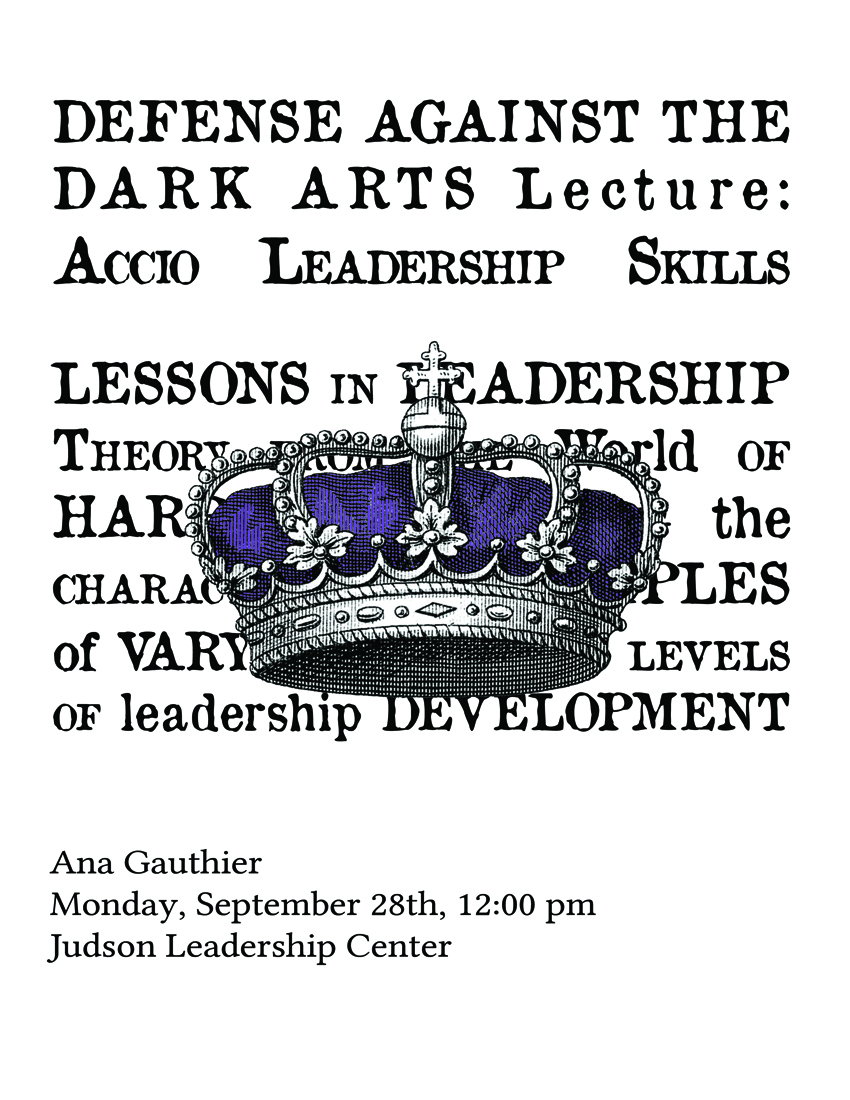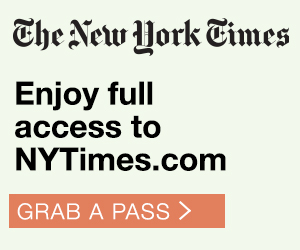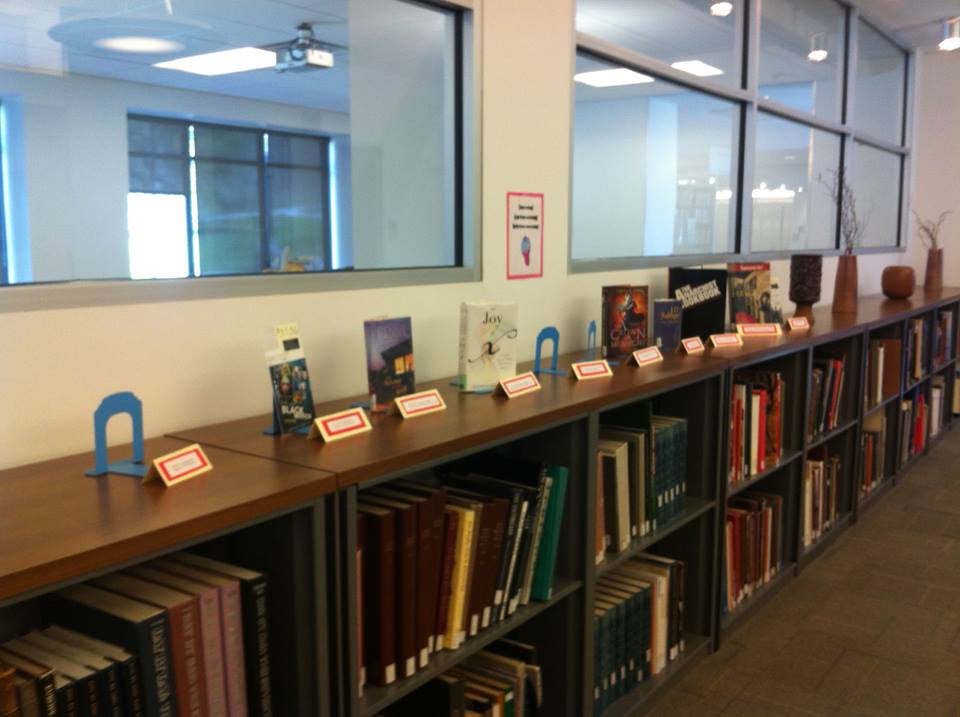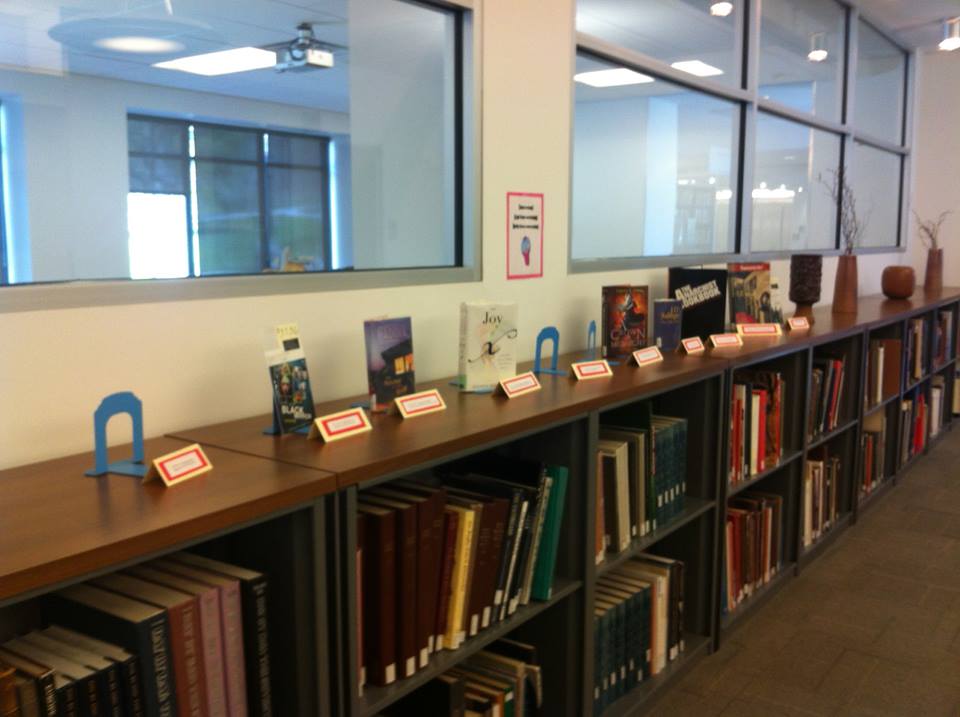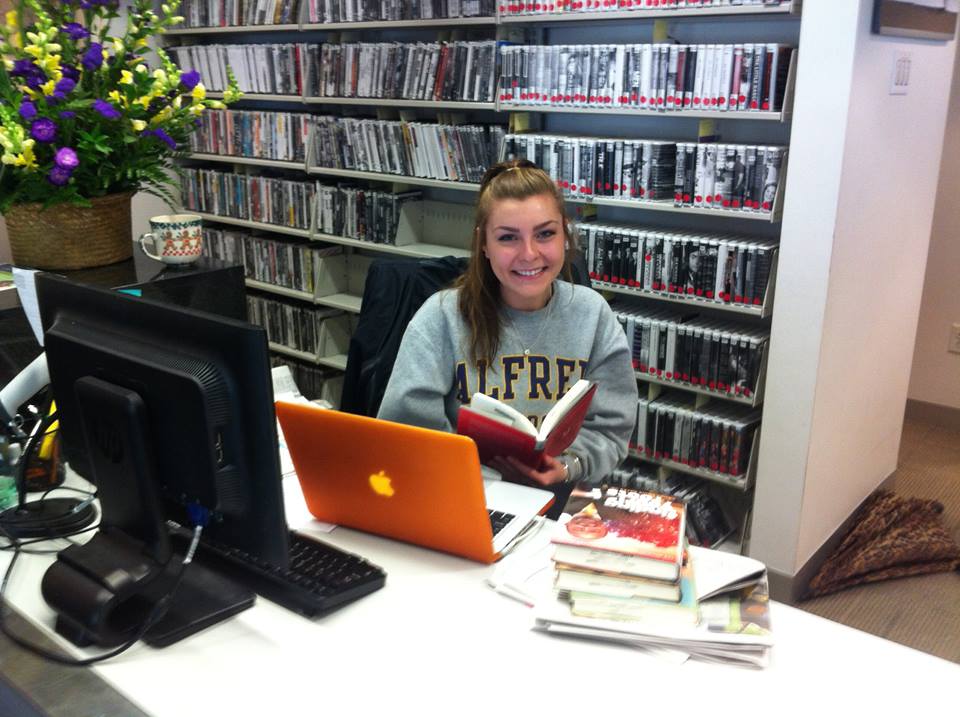Recently I attended a library orientation session where i overheard someone talking about their strong preference for books over e-books. When the instructor noted that most of the libraries resources are online now, he sighed. He clearly wished that he could access to more books in paper. One of our student workers shares that love of the physical book.
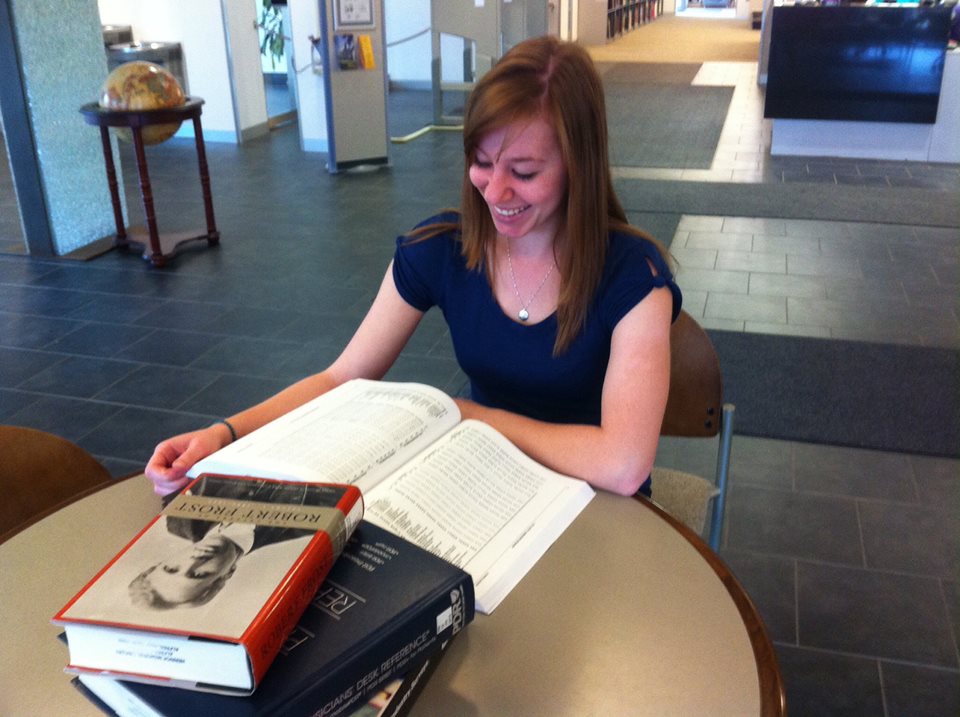
I imagine the person I overheard wouldn’t enjoy reading all of a book online. He might be a little glum, like this student worker staring at the screen like she wished she were doing something else.
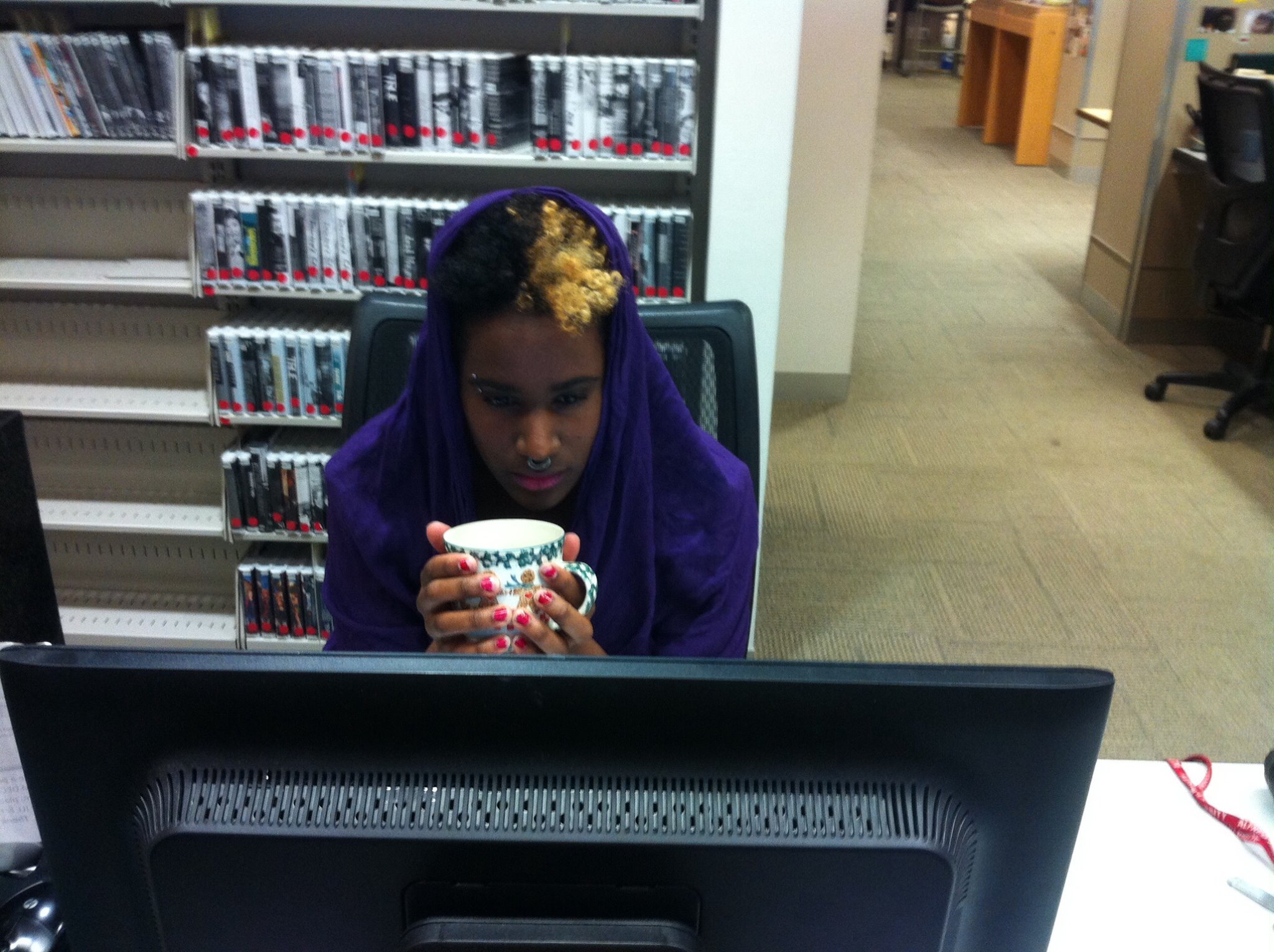
Like that student and like many of us, the experience of a book is a unique pleasure. Touching the book, holding it, smelling it and, of course, reading it are all part of the pleasure. It has many benefits. You can take it anywhere, read without a power source, you never have to wait for it to boot up, you can get right back to the page you left off at by just leaving it open, you can leaf through the pages to spot that section you liked and you know was on the lower right page — somewhere. My basement has shelves and shelves of favorite books that I go back to savor again and again. So I’m not anti-book, but why are we focusing on expanding the electronic resources?
COST
I have to admit — I’m an administrator, so I think about cost. A recent example of a decision we made was to add a new collection of electronic books. The collection costs about $3,000 per year. It has 125,000 book titles in it. So access to each of those books, for every Alfred University student, faculty member or staff member, costs about 2.5 cents a year. We bought it knowing that 75,000 titles overlapped with other collections we already owned. So why did we buy it? Because we’re still getting 50,000 unique titles at a cost of about 6 cents a year. To put that in perspective, if we used that $3,000 and bought books in paper, assuming that the average cost of each book and its book processing at about $50, we could buy just 60 books, instead of getting access to 50,000.
ACCESSIBILITY
The physical library is open quite a bit, 108 hours a week during the semester and library users can come in and browse to their hearts content. But the electronic resources are available all the time, 24 hours a day, 365 days a year. If you want to work at 3 in the morning, or work from off campus, or are part of the downstate programs you will only be able to access our online resources. And most, thought not all, of the libraries’ online collections are available to multiple users, so that you don’t have to wait until someone returns the book you want. Here’s another of our student workers enjoying her access to electronic materials.
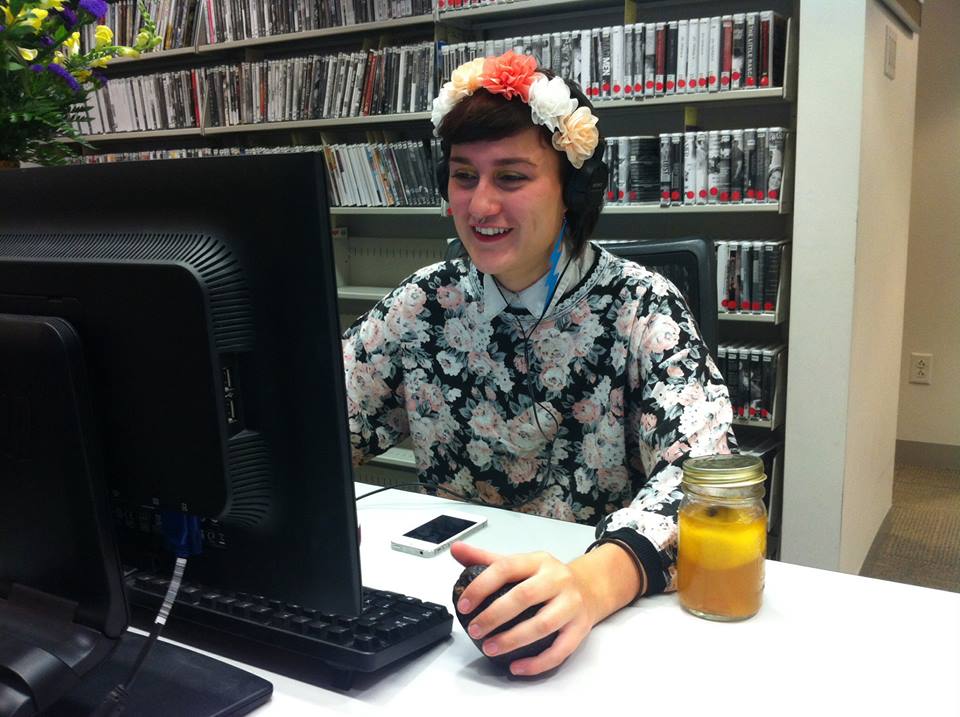
CONDITION
Books that patrons like will get used, and begin to wear out. They can get dropped in the bathtub, or a mud puddle, they can get sticky pages from people eating and reading at the same time, they can drop pages out, and sometimes patrons tear them out. Each new person who looks at an e-book gets the same fresh copy, and the pages of an online file can’t be torn, written on, or pulled out, although you can set up a person account and mark your own personal copy of the online book.
FEATURES
While you can’t browse an e-book in the same way you browse a paper book, you can search for specific words which you can’t do with a book. OK, you can do that with a book, it just takes forever. No, I’m not forgetting about indexes in paper books, but virtually all indexes are selective, and some of them are pretty quirky. Many of the databases provide citation tools that let you build your bibliography in a specific style sheet as you find each resource for your project. You can e-mail links of books to other members of a study or class group for the project you’re working on. Another one of our student workers is frustrated with looking through a pile of books, when he wishes he could search online.
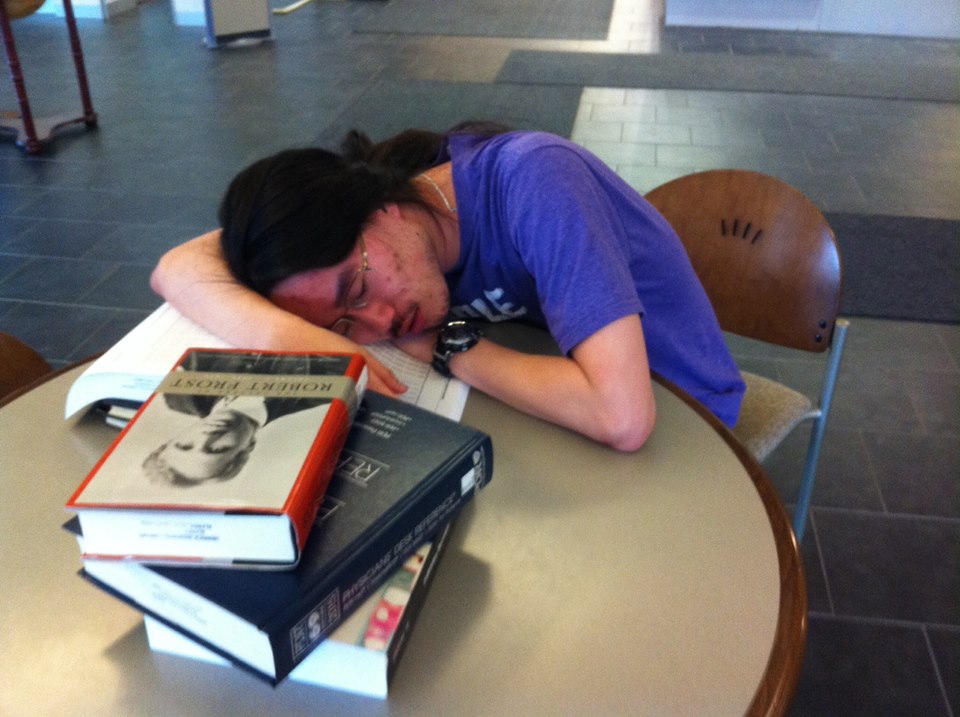
Books will never entirely be replaced by online resources and we continue to have extensive collections of paper books. However, in the interest of providing the best service and most extensive collections possible to Alfred University both on campus and at branch locations, our online collections make sense for us. We do continue to buy paper books, but online has become our major focus, for so many reasons. So enjoy both at Herrick Library!
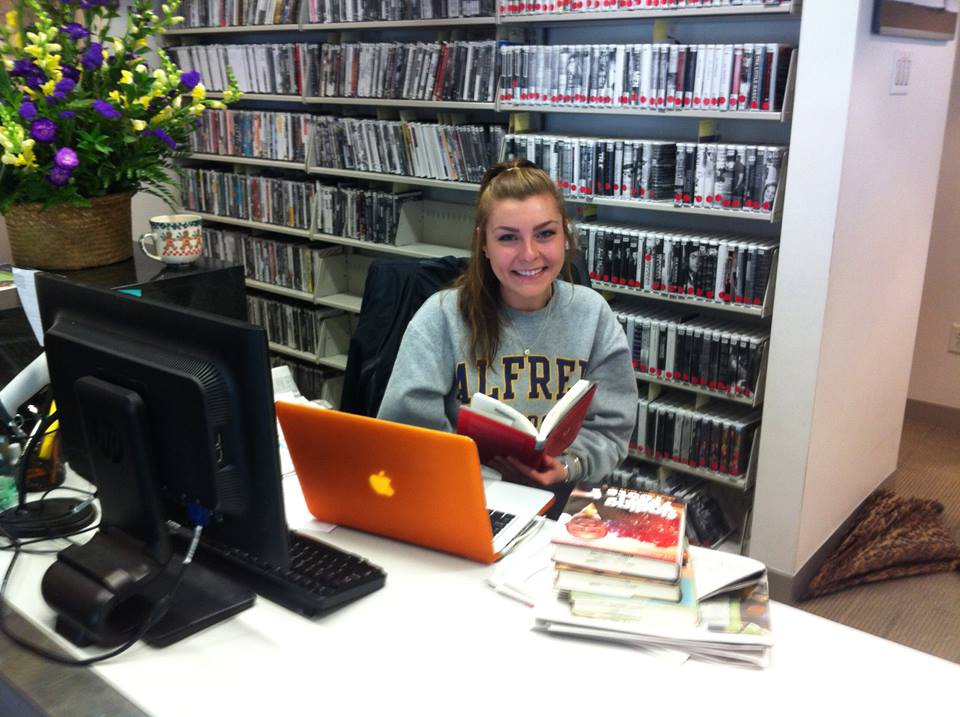
Please share your thoughts about this topic with Steve Crandall, fcrandall@alfred.edu, I’d love to hear from you!
